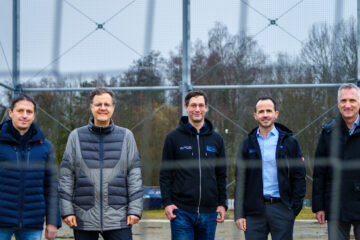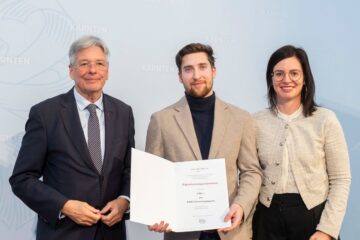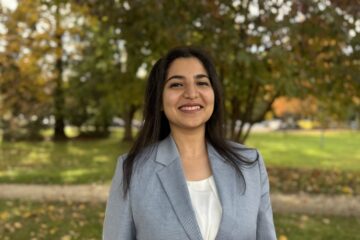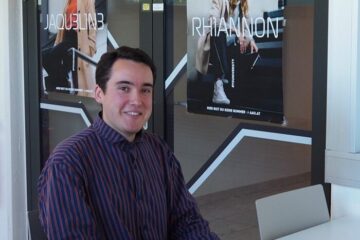
Daniel Neuhold, researcher in the team of Christian Bettstetter, received a “scholarship of excellence” from the Federation of Austrian Industries (Carinthia) and the Economic Chamber for a six-month research stay abroad.
You just received a scholarship worth 10,000 €. What will you do with this grant?
Neuhold: I plan to spend six months at the Viterbi School of Engineering at the University of Southern California (USC). With my expertise and gained experience I wish to contribute to the research location Carinthia afterwards.
On which topic do you plan to work at USC?
Let me first explain what I did in the past few years. My major at the University of Klagenfurt was wireless systems. I still recall one specific moment when I was close to submitting my master thesis: I was in the lab considering what to do after graduation when my professor, Christian Bettstetter, entered and offered me a position. The project I would be working in over the next couple of years was a collaboration with Airbus Group Innovations. Our task has been to develop a reliable sensor network for aircraft applications to replace wired connections to reduce weight and maintenance costs, yielding more cost-effective aircraft operation. I was delighted and accepted. Two years into the project, I am proud to say that we developed one of the first ultra wideband (UWB) sensor networks. We explored numerous features of this technology, tested its capabilities in our laboratories and evaluated its feasibility for operation in aircrafts. The project gained attention: we gave interviews to local newspapers, presented our work to visiting researchers, and published in conferences. I will continue working on UWB systems at USC.
What motivates you to work on aerial sensor networks?
From a young age on, I was fascinated by airplanes. Every flight I took and every plane passing above my head increased my interest and made me watch documentaries on technologies improving aircraft security. All through the years I maintained this curiosity, but it never seemed as if I would be able to become part of this field of research. But I was proved wrong.




